DURING Ramadan, Muslims around the world fast and wake up before dawn for sahur (pre-dawn meal).
Eating properly during the month is key to maintaining fitness and energy for our daily activities while fasting.
We chatted with celebrity chef and Middle Eastern food expert Rouba Shahin about sunnah foods besides dates that everyone can try.
Not only do the ‘superfoods’ on this list keep up your energy levels throughout the fast – they also have various health benefits.
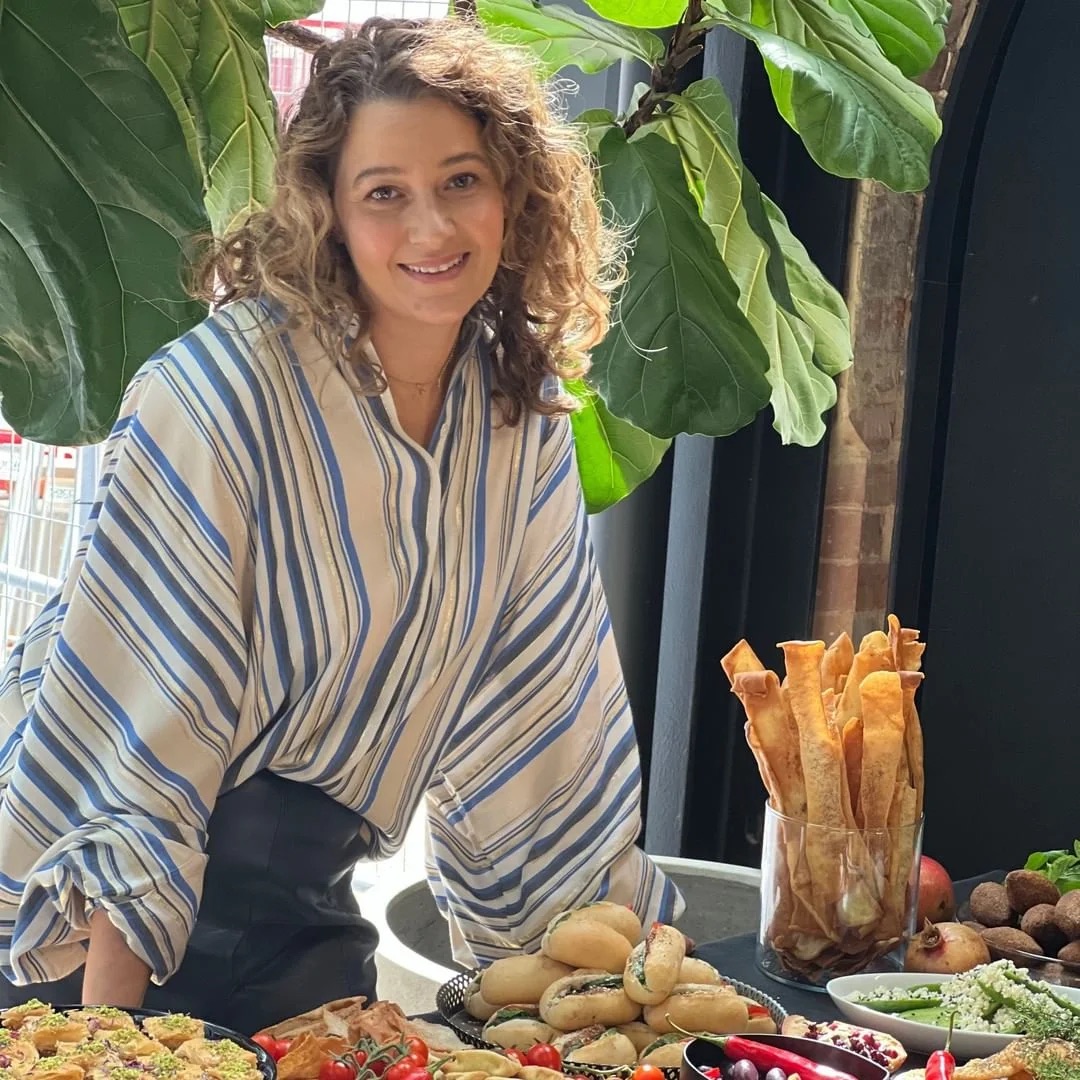
1. Black seed
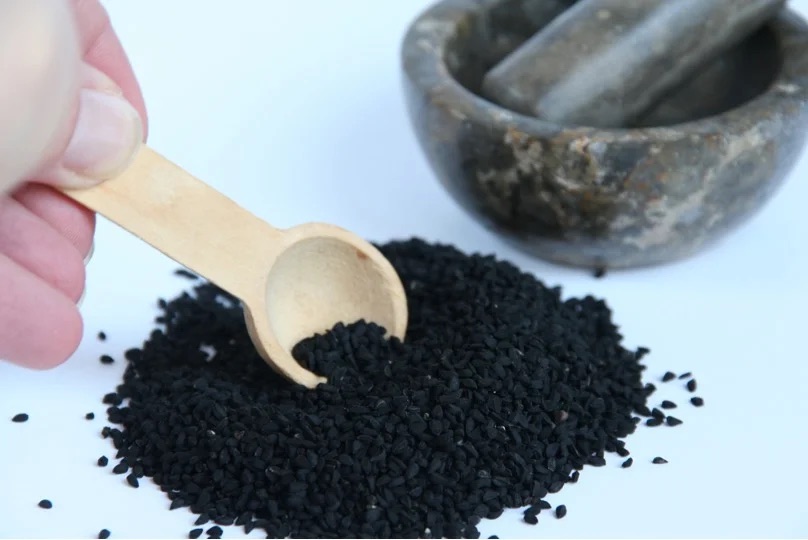
Black seed or black cumin has many benefits that can help strengthen the body’s immune system. It is often used as a natural remedy.
This herb has been extensively studied for its powerful antioxidant properties, specifically thymoquinone, which eliminates unstable molecules in the body.
In cooking, it is used as a mixture of spices and seasonings to further enhance the aroma of dishes because habbatus sauda has a fragrant smell.
2. Figs
Figs can be eaten fresh or dried, roasted or chilled. It is very tasty served with a salad or as a dessert.
This fruit has been popular for centuries, just like dates. It is also mentioned in the Quran because it provides many health benefits.
Figs are very rich in sources of calcium, iron, magnesium, vitamin B6 and potassium. It is not only low in fat but also high in fibre to aid the digestive process.
Consumption of figs has also been shown to support healthy bacteria in the gut, reducing constipation and bloating.
3. Pomegranate
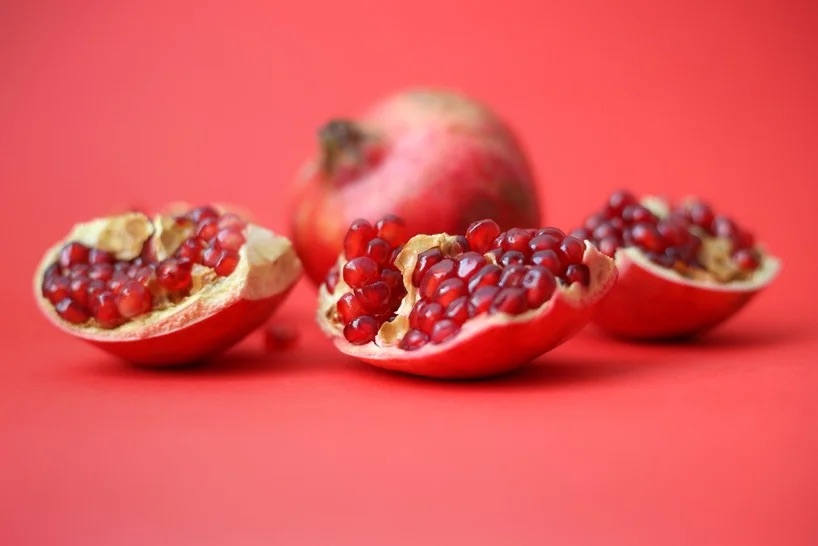
The pomegranate is also known by Muslims as the fruit of Jannah, or heaven.
It is mentioned three times in the Quran and is recorded in the hadith as good for the digestive system.
This sweet and slightly sour taste refreshes the palate and is rich in antioxidants, vitamins, minerals and folic acid.
The jewel-like details of the fruit are often used as a garnish for some Middle Eastern dishes. In addition, pomegranates can also be enjoyed on their own or with a little yoghurt.
4. Grapes
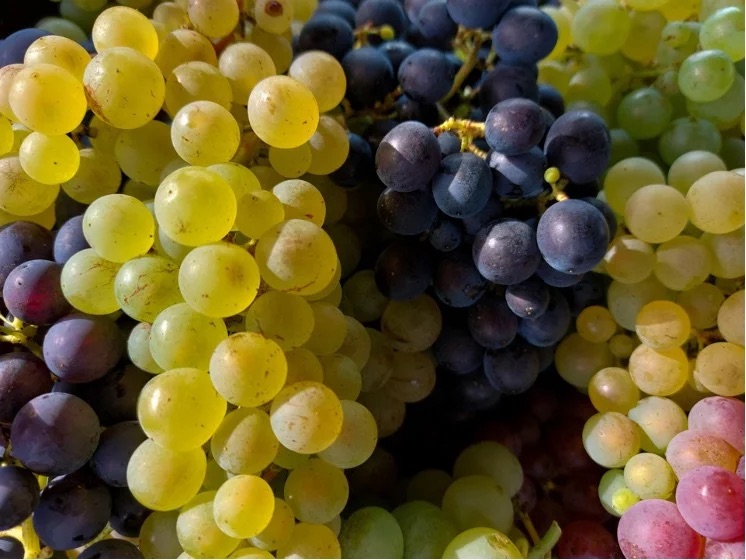
In the Quran, grapes are mentioned six times and are said to be one of the fruits found in paradise.
Ibn al-Qayyim in his masterpiece, The Prophetic Medicine, said grapes are good to prevent weight gain.
Grapes can also be a high source of nutrients as they contain vitamin C and potassium as well as antioxidants.
Its antioxidants are 20 times higher than vitamin E and 50 times higher than vitamin C. Grapes are also delicious with green salads.
5. Honey

There is a well-known tip that if you mix honey into warm water, it can relieve a sore throat.
This is because honey is full of antibacterial and anti-inflammatory properties that help neutralise harmful bacteria.
In addition to drinking honey, you can also spread it on toasted figs or toast, and mix it with Greek yoghurt. Give it a try!
6. Kiwi
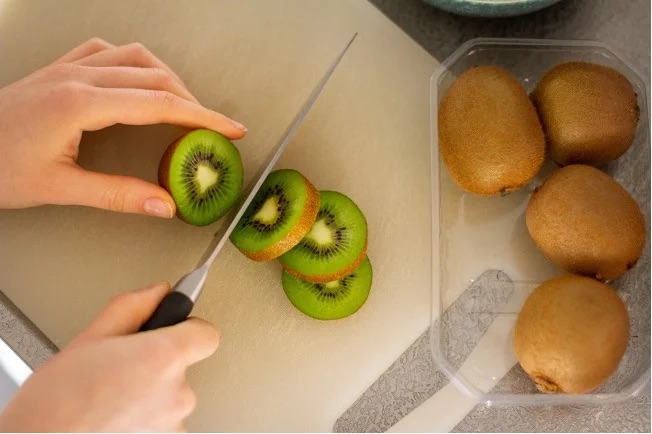
Kiwi is rich in sources of fibre, vitamins C and K and has more benefits than bananas, apples, strawberries and even oranges.
Kiwi is also said to be a fruit that can improve sleep and mood.
Surely you will feel healthier after eating a nutritious and tasty fruit like kiwi.
7. Olive oil
Many people often complain of dull skin and acne during Ramadan due to lack of water intake.
Including olives or olive oil into your diet during sahur or breaking fast can overcome this problem.
Olives are not only rich in antioxidants, fibre and vitamin E, but they have a variety of health benefits and can be included in almost any food.
Your food not only tastes better, it even looks fresher, more scrumptious and appetising.
Visit the Muslim Pro app to get Middle Eastern food recipes by Rouba Shahin that use these sunnah ingredients. – The Vibes, April 23, 2022
*This article was first published in The Vibes' Malay language sister portal Getaran.



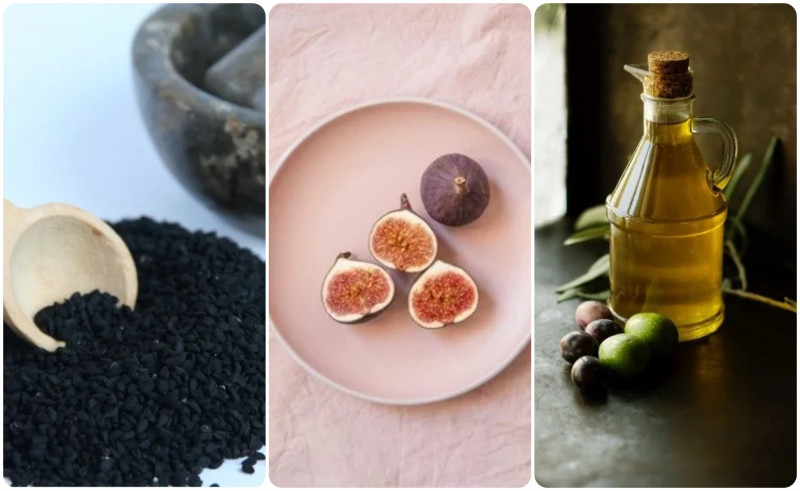



.JPG)
.jpg)












